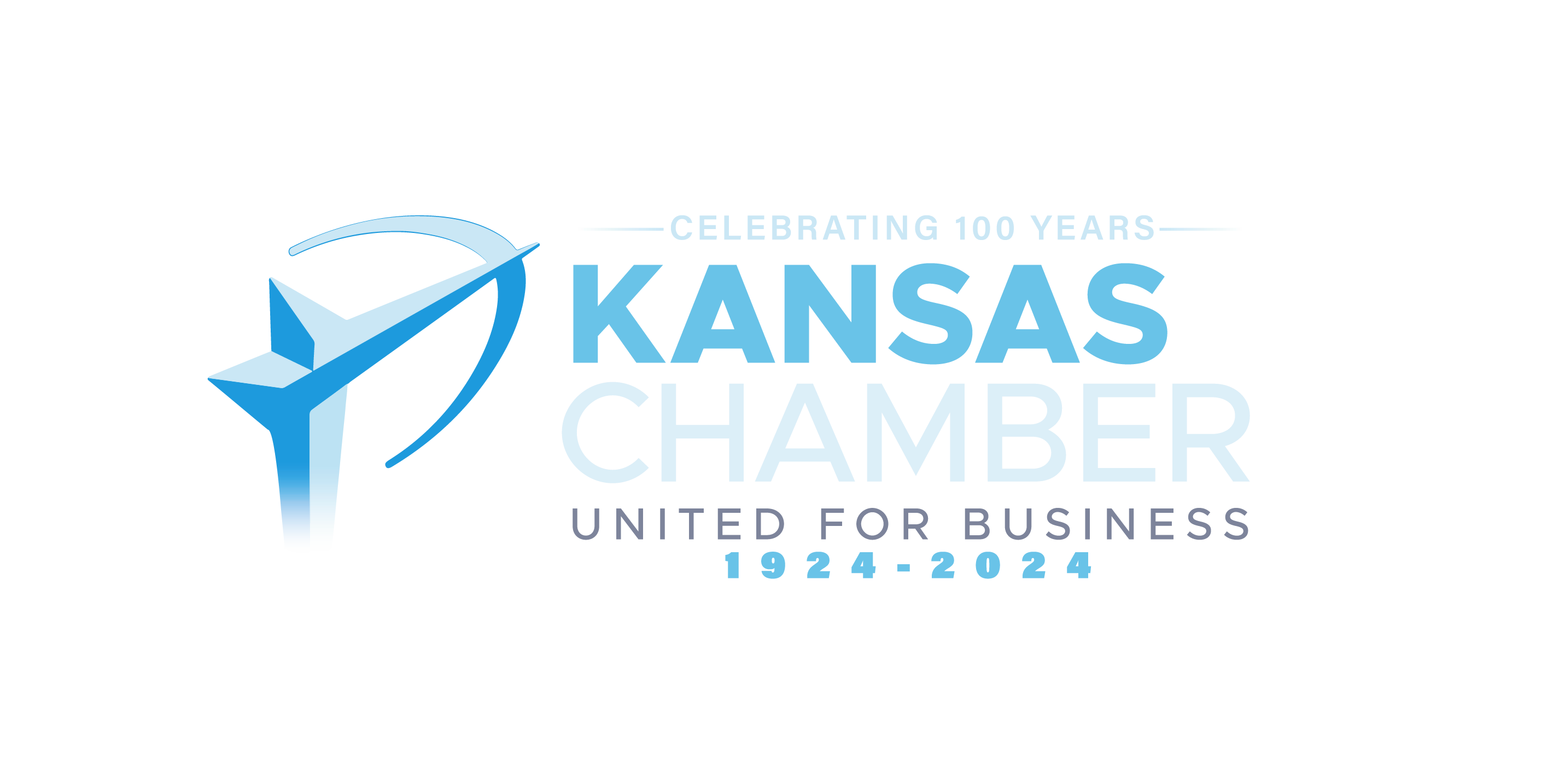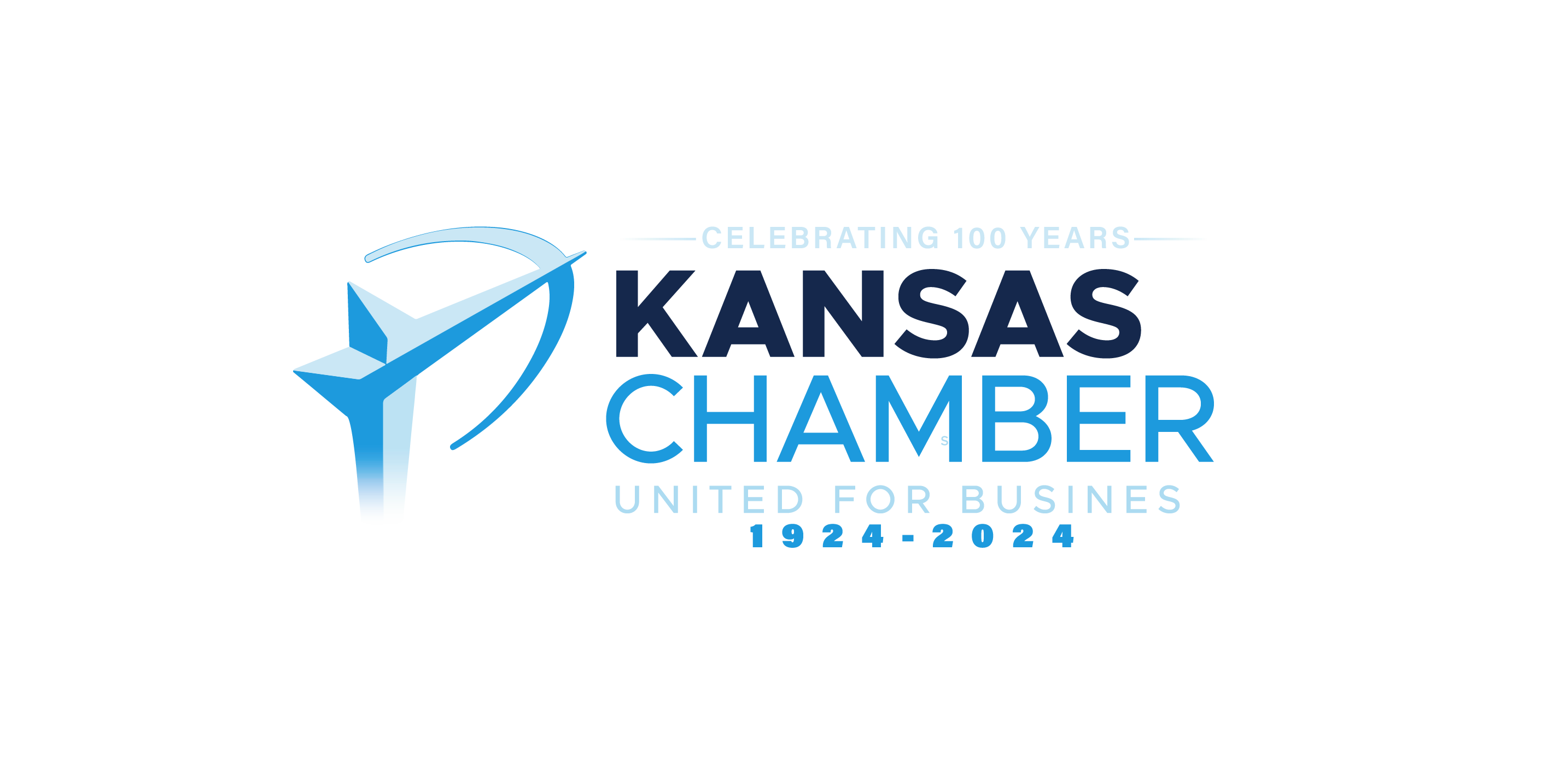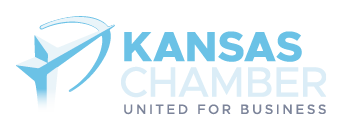29 Jan Annual Business Leader Poll Finds Optimism and Concerns Rising
Topeka, KAN., (January 29, 2018) – The Kansas Chamber’s most recent annual business leader poll found while business leaders are feeling more optimistic about the direction of the state, taxes and a prepared workforce are becoming even greater concerns.
“The Kansas Chamber’s core purpose is to be an advocate for pro-business public policies that enable Kansas businesses to succeed,” said Alan Cobb, Kansas Chamber President and CEO. “We reach out to the state’s business community annually to learn what are the most important issues facing their organizations. Their responses help the Chamber determine our policy focus and our legislative agenda for the upcoming session.”
Each year the Chamber commissions Cole Hargrave Snodgrass and Associates (CHSA) to conduct a poll of 300 Kansas business leaders to gauge their thoughts and concerns regarding the Kansas business and political climate. The participating businesses reflect company sizes and industry sectors that make up the Kansas business community according to Dun and Bradstreet. CHSA’ Pat McFerron oversaw the poll conducted in October 2017.
“While still negative, there was a significant rebound in the belief that our state’s economy is on the right track, especially in the areas of agriculture and construction sectors,” McFerron said.
Each year the Chamber asks businesses to name the two most important issues they face.
“Taxes are becoming an event greater concern. It has always been at the top, but this year it has become an even more intense issue,” McFerron said. “With 45% of business leaders polled, lowering taxes on business also was the top issue most important to profitability, followed by managing healthcare costs (37%) and decreasing government regulations and mandates (27%).”
When it comes to workforce supply, McFerron said businesses are optimistic about hiring in the coming year but still have concerns about the quality of the workforce.
“Business leaders expressed growing concerns about potential employees passing drug tests, though this issue pales in comparison to the need for both soft and technical skills. 48% are concerned about finding employees with soft skills while 31% are concerned about employees with technical skill,” McFerron said.
Workforce concerns also tie into where business leaders were when asked whether it was more important for Kansas to provide more funding for education or improve performance and rigor of schools. 51% said it was more important to improve school performance and rigor.
Additional questions focused on school funding found 74% of business leaders believe funding is focused too much on school administration as opposed to on student achievement and 77% believe Kansas needs to get more than 55% of education dollars to the classroom. Current state law sets classroom funding guideline at 55%.
In light of the recent Kansas Supreme Court’s ruling on state funding for K-12 education, the Chamber asked business leaders whether they thought the high court had overstepped its authority. 65% said they believed the court had overstepped their authority with the ruling.
“Overwhelmingly, business leaders believe the Kansas Supreme Court has overstepped its bounds by demanding more funding for K-12 schools,” Cobb said. “That is why the Kansas Chamber supports a constitutional amendment for the democratically elected legislature to have exclusive authority to determine funding for schools in an effort to eliminate endless litigation over school funding”
The Kansas Chamber has conducted its annual business leaders poll since 2004.
Read more about the poll: 2017 Business Leaders Poll


